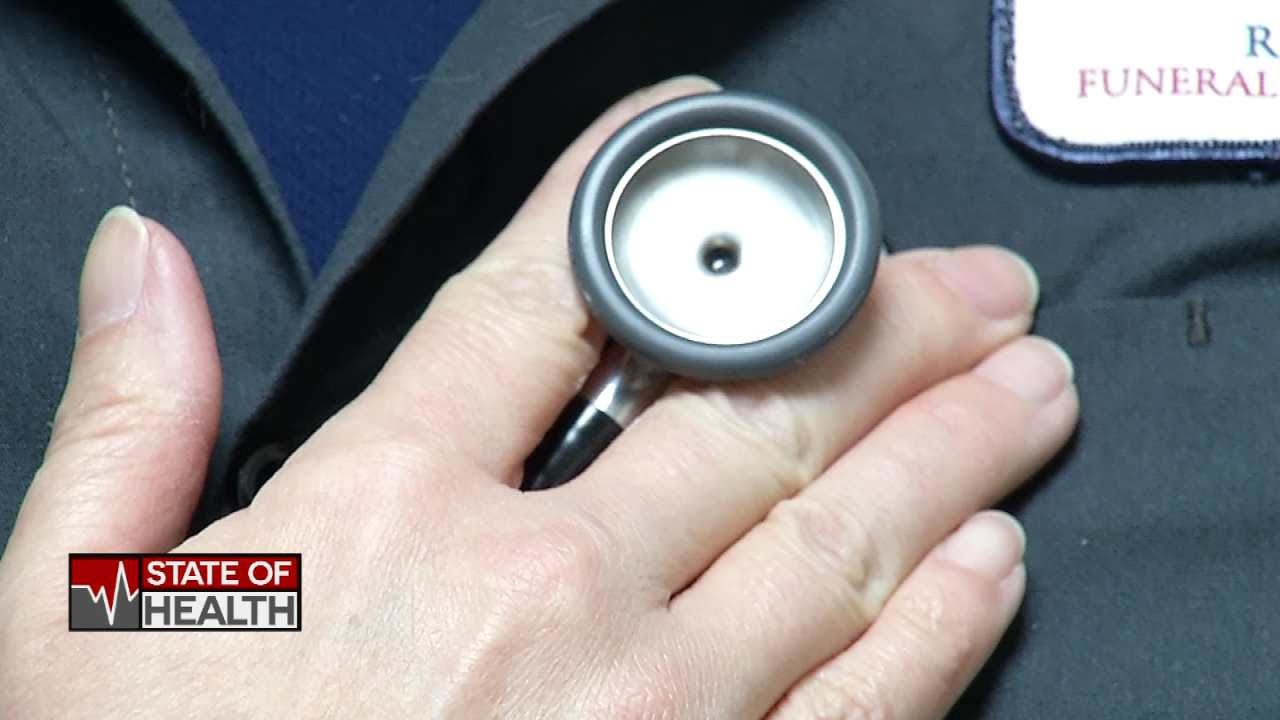Oklahoma's Healthcare Scorecard Looks Grim
<p>Oklahoma's health scorecard is filled with discouraging news. And yet, many Oklahoma health care workers say there is reason to be optimistic that we can turn the tide. </p>Friday, September 1st 2017, 12:15 pm
Oklahoma's health scorecard is filled with discouraging news. In fact, our state ranks almost last when it comes to premature death and overall national health. And yet, many Oklahoma health care workers say there is reason to be optimistic that we can turn the tide.
Dr. Colony Fugate was only a teenager herself when she found the inspiration upon which she would build her career.
"I saw a 7-year-old boy with obesity and Type 2 diabetes, and I just thought to myself - oh, my goodness. What a challenge this child has in front of him," she said.
Now she spends her days in Tulsa, at Oklahoma State University's Center for Health Sciences, working to protect the youngest generation of Oklahomans from a similar fate.
Obesity, she says, is a complex disease upon which a mountain of other chronic diseases are stacked - shortening life spans and diminishing the quality of life for more than a third of Oklahomans.
"Individuals who are overweight or obese are less likely to be as productive at work, have higher rates of absenteeism, tend to retire early," Dr. Fugate said. "They also experience extreme levels of bias and stigma in the community."
Dr. Fugate's Family Health and Nutrition Clinic is dedicated to reversing the rising tide of obesity, and she points with pride to the small victories won.
The skyrocketing rate of childhood obesity has begun to level off in Oklahoma. Still, the state ranks 43rd in the nation with 34 percent of its adults classified as obese.
Other statistics are just as grim. Oklahoma is:
- 48th for cardiovascular deaths
- 48th for physical inactivity
- 45th for smoking
- 44th for cancer deaths
- 42nd for diabetes
We're almost last for fruit consumption and not much better when it comes to vegetables. All of which puts us at number 46 for premature death and overall national health. It's an epidemic that affects not only our health but our pocketbooks.
That's not just in healthcare expenses but in trying to recruit companies to Oklahoma. Governor Mary Fallin found our poor health is actually costing us jobs.
"And they actually said I chose not to come to Oklahoma because you rank poor in health, and if you have unhealthy workers and unhealthy people then my health insurance costs are gonna be higher - plus people are gonna be taking off work because they're just not healthy, and they won't be as productive," Fallin said.
And yet when Dr. Colony Fugate looks over her home state, she remains undaunted.
"Oh no, I'm not discouraged by any means. There's a lot of really good work being done around the state, and I think we're making progress, honestly," she said.
Her optimism is shared by the Dean of OSU's College of Osteopathic Medicine, Dr. Kayse Shrum. Oklahoma's poor health outcomes are due in no small part to a simple lack of medical care; we're 48th in the nation for the number of physicians, and rural areas are especially hit hard.
"They want to get care in their communities. It's hard for people to travel miles, hours to get to someplace to get healthcare," Shrum said.
New technology called ECHO is extending the reach and the expertise of Oklahoma's university hospitals to every corner of the state.
"It allows us to transfer the knowledge that we have to those communities, to physicians, to nurse practitioners, to community health workers," Shrum said. "That's the kind of thing we need in our state."
To truly begin healing in Oklahoma, Dr. Shrum believes there is one more piece, the most important one, and that lies in the hands of each and every one of us.
"True change happens when someone takes that responsibility for their own health outcomes," she said. "Our patients ultimately have to be accountable for their health and their health decisions."
More Like This
September 1st, 2017
September 29th, 2024
September 17th, 2024
Top Headlines
December 11th, 2024
December 11th, 2024
December 11th, 2024
December 11th, 2024











